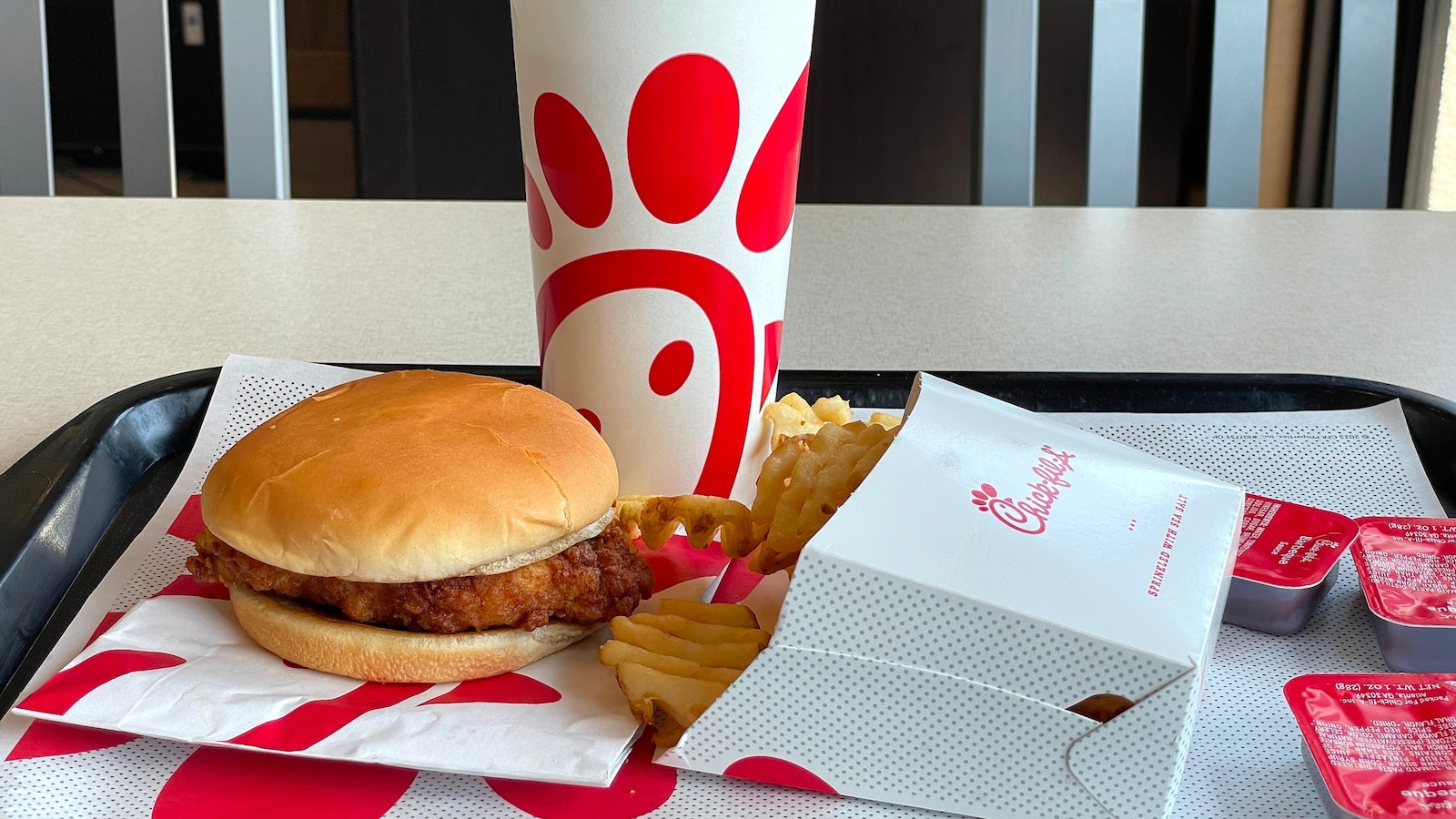Chick-fil-A is updating its commitment to customers about the quality and standards of its staple ingredient — chicken.
The fast food chain announced on its website that while “serving quality food has always been our priority,” effective this spring, the restaurant will “shift from No Antibiotics Ever (NAE) to No Antibiotics Important To Human Medicine (NAIHM).”
Employees prepare fried chicken sandwiches for guests during an event ahead of the grand opening for a Chick-fil-A restaurant in New York, Oct. 2, 2015.
Michael Nagle/Getty Images
The key distinction between NAE and NAIHM, as outlined by Chick-fil-A, is that the first “means no antibiotics of any kind were used in raising the animal,” while “NAIHM restricts the use of those antibiotics that are important to human medicine and commonly used to treat people, and allows use of animal antibiotics only if the animal and those around it were to become sick.”
In the announcement, Chick-fil-A reiterated its dedication to high-quality chicken is rooted in three components: selectivity, high animal wellbeing standards, and evolving the brand’s approach.

In a file photo, no trespassing signs are posted at a farm operated by Daybreak Foods, reported to have been hit with a highly pathogenic strain of avian influenza, near eagle Grove, IA, May 17, 2015.
Scott Olson/Getty Images
On the first point, the restaurant laid out that it only serves “real, white breast meat with no added fillers, artificial preservatives, steroids — and no added hormones.”
“We established an Animal Wellbeing Council of outside experts, which provides feedback on our policies and practices,” the update stated. “With their input, we are constantly evaluating our approach to animal wellbeing to ensure it is consistent with or exceeds industry standards.”

A sign sits at the entrance to the Cold Springs Eggs Farm where the presence of avian influenza was reported to be discovered, forcing the commercial egg producer to destroy nearly 3 million chickens, Palmyra, WA, March 24, 2022.
Scott Olson/Getty Images
Chick-fil-A first set a goal in 2014 to sell antibiotic-free chicken at its restaurants within five years and committed to sourcing only cage-free eggs for its breakfast menu items by 2026.
With increasing outbreaks at U.S. chicken farms of Highly Pathogenic Avian Influenza (HPAI), commonly referred to as bird flu, chicken supplies have dwindled prompting an uptick in prices.
A representative for Chick-fil-A did not immediately respond to ABC News’ request for additional comment.
